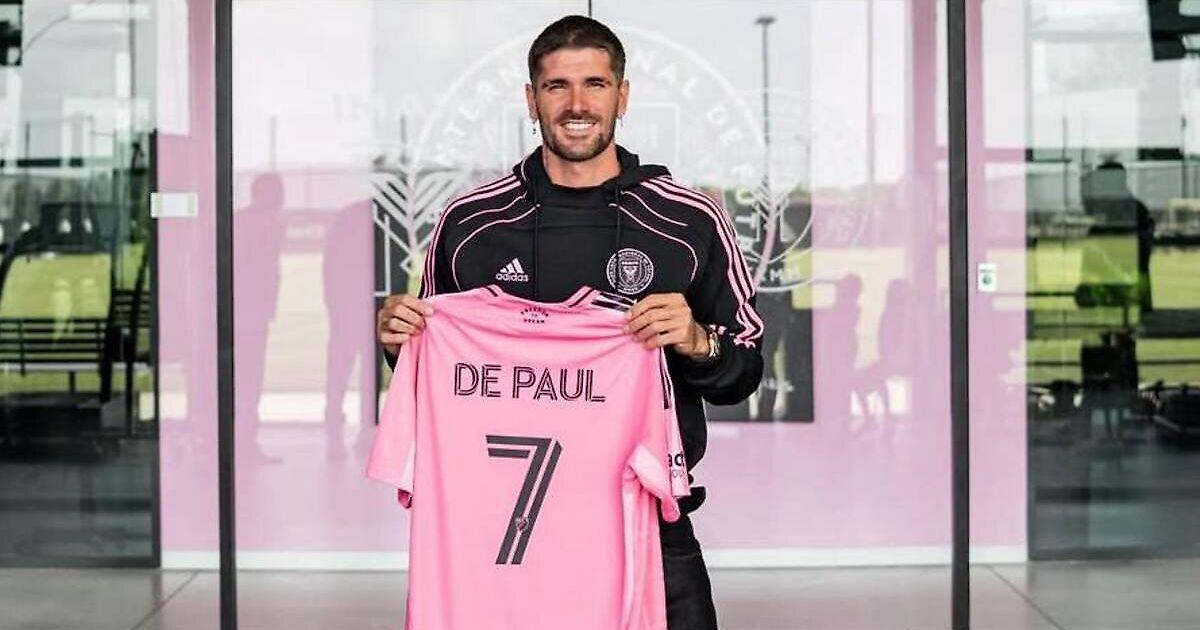The landscape of Major League Soccer continues its seismic shift, primarily orchestrated from the sun-drenched pitches of Fort Lauderdale. Following the earth-shattering arrival of Lionel Messi, Inter Miami CF has once again captured global football headlines with the surprising acquisition of Argentine World Cup winner Rodrigo De Paul. This isn`t just another high-profile name joining the `retirement league` narrative; it`s a calculated, tactical masterstroke that signals Miami’s unyielding ambition and their increasingly sophisticated approach to roster building within MLS`s unique framework.
A Strategic Coup: Navigating MLS Roster Rules
Securing a player of De Paul`s caliber, particularly one still very much in his prime at 31 and on the books of Atletico Madrid, presented a formidable challenge given MLS`s rigid salary cap and Designated Player (DP) rules. With Messi, Sergio Busquets, and Jordi Alba already occupying their three allotted DP spots, Inter Miami`s front office demonstrated an impressive, some might say audacious, level of financial engineering. De Paul joins on loan, cleverly designated as a Targeted Allocation Money (TAM) player for the current season. This intricate maneuver bypasses immediate DP constraints, with a reported purchase option around $17 million for next season, at which point he would transition to a DP slot.
Such creative solutions, though technically compliant, highlight the dynamic tension between the league’s foundational rules and a club’s fervent desire for top-tier talent. A trade with Atlanta United, involving General Allocation Money and an international roster slot, further greased the wheels, proving that in MLS, sometimes the biggest battles are won not on the pitch, but in the boardroom, meticulously parsing league bylaws.
More Than Just a Name: De Paul`s Tactical Significance
De Paul`s arrival transcends mere star power; it`s a profound tactical upgrade for the Herons` midfield. While the integration of Federico Redondo may not have yielded the immediate, robust midfield presence initially hoped for alongside Busquets, De Paul offers a ready-made, world-class solution. Known for his tireless work rate, defensive tenacity, and incisive passing, he brings a dynamic box-to-box element that has been conspicuously absent. His familiarity with Messi from their triumphant Argentina campaigns ensures instant chemistry.
This partnership will allow Busquets to operate in his preferred deeper-lying playmaker role, shielded by De Paul`s relentless pressing and ball recovery. Furthermore, De Paul possesses the ability to drive forward, link play, and unleash powerful shots from distance – a multi-faceted threat that adds crucial dimensions to Miami`s attack, which has sometimes relied solely on individual brilliance. Unlike many illustrious European imports who arrive in MLS having already passed their peak, De Paul is poised to make a significant impact for years to come, raising the bar for what a `prime` signing in MLS can achieve.
The Stakes Are Higher: Trophy Expectations and the Road Ahead
The echoes of last year’s Leagues Cup triumph, Miami’s maiden trophy, still resonate. With De Paul`s imminent debut, potentially against Atlas, expectations have not just risen; they`ve become an unwritten decree. Inter Miami is no longer merely a playoff hopeful; they are, by all accounts, the presumptive favorites for both the Leagues Cup and the coveted MLS Cup. This heightened pressure underscores a pivotal moment for the club: the era of collecting marquee names has given way to an era of demanding silverware.
The challenge now lies in translating paper talent into on-field dominance, navigating the grind of a long season, and silencing any lingering doubts about the sustainability of their ambitious project. For Inter Miami, the game has changed – and with Rodrigo De Paul, they`ve just played a very strong hand.

